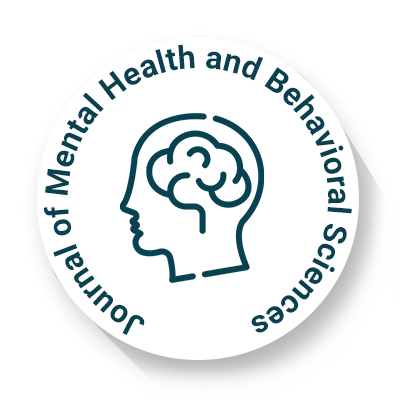
Journal of Mental Health and Behavioral Sciences
OPEN ACCESS

OPEN ACCESS
.jpg)
1Assistant Professor, Department of Basic Science and Humanities, Aditya Institute of Technology and Management (Autonomous), Srikakulam, Andhra Pradesh- 532 201, India
2Assistant Professor, Department of Psychology, Kalinga Institute of Social Sciences, Odisha, India
3Former Post Graduate Scholar, Department of History, Utkal University, Odisha, India
4Assistant Professor, School of Management Studies, GIET University, Gunupur, Odisha, India
This groundbreaking research study employs rigorous statistical analysis to quantitatively assess the mental health landscape of tribal communities, providing unprecedented insights into the well-being of these populations. This study uses comprehensive datasets and advanced statistical methodologies to shed light on the prevalence of mental health disorders within tribal communities, identify key risk factors, and explore potential interventions. By drawing upon surveys, epidemiological studies, and population data, this research offers a comprehensive understanding of tribal communities across diverse regions. The statistical findings reveal alarmingly high rates of depression, anxiety disorders, substance abuse, and post-traumatic stress disorder (PTSD) among tribal communities, surpassing those of non-tribal populations. These insights underscore the urgent need for targeted interventions and support services to address mental health challenges in these communities. Moreover, the study quantifies the impact of socio-cultural determinants, such as acculturation stress, discrimination, socioeconomic disparities, and limited access to healthcare services, highlighting their significant contributions to tribal mental health issues. Furthermore, this study evaluates the effectiveness of culturally adapted psychotherapies, mental health literacy initiatives, and policy interventions aimed at improving the well-being of tribal populations. The quantitative analyses provide robust evidence to guide the development of targeted strategies and interventions. These insights emphasize the importance of prioritizing the mental well-being of tribal communities among policymakers, healthcare providers, and stakeholders.
1Assistant Professor, Department of Basic Science and Humanities, Aditya Institute of Technology and Management (Autonomous), Srikakulam, Andhra Pradesh- 532 201, India
2Assistant Professor, Department of Psychology, Kalinga Institute of Social Sciences, Odisha, India
3Former Post Graduate Scholar, Department of History, Utkal University, Odisha, India
4Assistant Professor, School of Management Studies, GIET University, Gunupur, Odisha, India